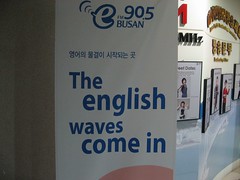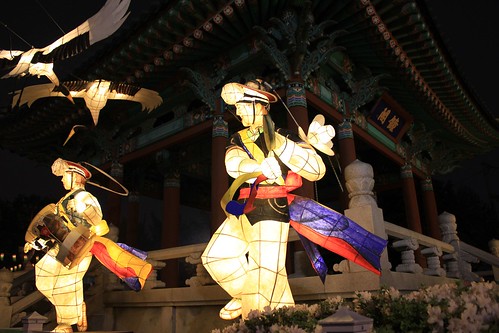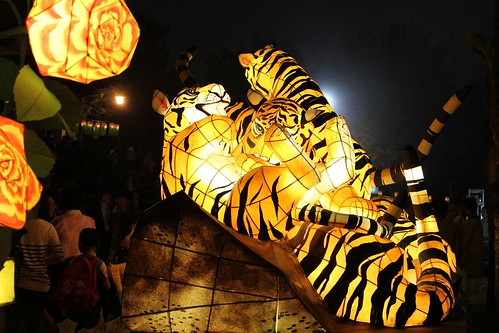 About 'Open Mike in Busan'
About 'Open Mike in Busan'Background
I prepare notes for my radio segment; I always felt that to be my best on the show I had to construct a narrative. Like most of the things I write, it’s more time consuming than the result appears to suggest or justify; I tend to debate each word and nuance in my head. Sometimes it turns violent. This week was a new low; the preparation time for my ten minutes on air was nine hours.
My topics are sometimes purely anecdotal experiences and while there may be deeper points to be made, the intention is primarily to entertain. But other times there are serious issues to discuss, and this seemed to be one of those times. I feel there are a lot of stereotypes of foreigners in Korea, often perpetuated by the media. One of the reasons I agreed to do a weekly slot on Busan eFM – and then sign on for a second season – was the notion that in just being out there and talking to a Korean audience – albeit one that is learning or already speaks English – it might provide more of an insight into the deeper thoughts and fears of a foreigner living here. I wanted to speak out. I think if you don’t, Korea is something which just happens to you.
But after kicking the ideas around in my mind for a long time, forming structure and writing sound-bites, I felt the result I wanted had eluded me. Writing to me feels like a game of chess, where the paragraphs are pieces and the various parts have to be carefully choreographed into a winning position. Except it’s not so much chess as blitz chess, played against the clock for suboptimal results. This week I really felt the need to win the game, but as it wore on I realised I’d forgotten how to play.
The powers that be at the station seemed to like it, but I’m not under the illusion that anyone really cares. In the end, my writing is as much about getting my own thoughts in order and understanding the confusion of contradictions that is myself, as much as it is about anything else.
Introduction
May is kind of family month in Korea, because of the close proximity of Children’s Day and Parents’ Day. So the TV channels are running lots of family-related programmes. Inevitably this includes the vaguely self-satisfied ‘foreigners integrating well into Korea’ genre of programming, and there are two main types of show – women from South-East Asian countries brought here via marriage brokers for older Korean men, and Western foreigners married to Korean women.
Reality and unreality
I find the programmes featuring the Western men fascinating. Some are obviously willing collaborators, but sometimes I feel that others have a kind of haunted look about them – the look of men who are trapped. There’s something in the body language and the tone of what they say in English. It’s a subtlety I suspect is lost on most of the Korean audience; it’s easy to focus on how well foreigner is eating kimchi or speaking Korean.
I suppose I don’t find these programmes realistic – certainly at least, they don’t match my experience. But then I’ve read a lot of foreigners talking on the Internet about their Korean lives, and these programmes don’t often seem to match their experiences either. They tend to create a positive image, but perhaps that’s not the reality. My wife actually said to me that she hopes her mother doesn’t watch too many of these shows, because they make me look bad in comparison.
Unfortunately she does watch them. In fact we were in a taxi a few ago and the female driver watched these programmes too. “Living with him must be ‘fun’” she suggested. My mother-in-law smiled, but gave no answer, which I think tells you the truth.
So I think these programmes make my life more difficult – I can’t live up to the snapshot positive image they create. I suspect that if I were on one of these programmes, even I’d look better than I am on them; I’d look integrated because I live with my mother-in-law, and now brother-in-law (again), but it’s not the reality.
It can be difficult marrying someone from another culture and living in that culture. It’s easy to feel isolated because of the cultural barriers and language barriers. There’s the pressure to integrate, to learn Korean, to conform, and it can create a lot of stress. My life’s pretty messed up really. Don’t get me wrong, I like living in Korea, but my living here is full of problems – and that’s the reality.
International Marriage Damage and Prevention
There’s been some controversy about these TV programmes in the last week, which stems from the rise of ‘anti-multicultural groups’ in Korea.
One group, the wonderfully titled International Marriage Damage & Prevention Center, plans to hold a rally outside KBS headquarters in June to urge the broadcaster to stop airing the programmes which they accuse of ‘beautifying’ multicultural families by creating ‘illusions’ about them. That’s basically the same thing I said, but the difference is that my concern is purely the portrayal on television of these relationships – I think it’s clear what these anti-multicultural groups really want is just for certain types of foreigners to be kept out of Korea.
I find it fascinating that they are mainly targeting migrant workers and imported foreign wives – not Westerners – even though we’re all part of multiculturalism here. Their argument is that migrant workers are taking away jobs from Koreans and ‘committing crimes’, and immigrant wives are coming here as part of marriage scams to ‘earn money’.
I think this ‘committing crimes’ thing is a huge clue as to where they are coming from. There’s always been a strong nationalistic streak running through Korean society, and there’s nothing wrong with being proud of your country, but there’s a narrow line between pride and hatred. The English author Samuel Johnson said that “Patriotism is the last refuge of a scoundrel”. I don’t think he meant that all patriotism was necessarily bad, but he was highlighting how common it is for people who have no intellectual argument – or no intellectual ability – to dispense with rational debate in favour of appealing to people’s fears and hatred. I think Europeans like myself are especially sensitive to this kind of behaviour because of what happened in 1930s Germany and other European countries in history. Nothing good ever comes out of trying to make an entire country irrational and angry by lying to them, and it scares me when groups start trying to manipulate people by creating fear.
All Foreigners in Korea are (Potential) Criminals*
I don’t agree with these criminal accusations. I’ve said before that National Police Agency figures show that foreigners in Korea commit fewer crimes per-person than Koreans, and it makes sense if you think about it; if you’re an economic migrant – or any kind of foreigner here – the last thing you want to do is commit a crime, get caught, thrown out of the country and lose it all. Of course, a few foreigners will commit crimes, but these groups are trying to create the fear among Koreans that all foreigners are criminals – it’s certainly the implication of the statements they are making – and that’s just simple racism.
Even though they aren’t targeting Western foreigners, we’ve had these accusations ourselves in the past of course. A few years ago the newspapers were full of suggestions that foreign English teachers were coming to Korea and spreading HIV and AIDS. This time, these hate groups are attacking ‘economic migrants’ from countries perceived to be ‘inferior’ (i.e. poorer) to Korea, which is another thing that tells you this is racially motivated.
The odd thing is if you think about it – given the poor job situation in my country and especially America, many Westerners here are really economic migrants too. It’s not uncommon to hear native-English teachers here say they can’t easily go back home because there are no jobs. But these anti-multicultural groups aren’t attacking Westerners - strangely only people from other Asian countries seem to have this stigma attached to them - although if they aren’t stopped they’ll probably come for us next.
Of course, Koreans in the U.S. have committed crimes – some very high profile like the Virginia Tech Massacre. But how would Koreans here feel if American groups started campaigning for Koreans to be kept out of the country? For that matter, people from Busan have committed crimes in Seoul – how would Busan citizens feel if groups in Seoul said people from this city shouldn’t be allowed to move to the capital because people from Busan are ‘criminals’ or only going to Seoul as part of ‘scams’. It would be ridiculous, but then why should foreigners in Korea have to be treated like this?
Fairly unbalanced
I think these TV programmes are actually part of the problem. By making multicultural families look more positive than they are they are feeding these hate groups. I don’t know if there’s a solution, but it’s clear that migrant workers have lots of problems with discrimination and working conditions, and there have been numerous cases of immigrant wives being abused and even murdered by their husbands in recent months alone. Even as a Westerner, I have problems here. Of course, these groups are probably pretending that these things don’t happen, unless they are particularly ignorant – which is always a possibility.
But perhaps if these programmes showed more of these problems then maybe – like my mother-in-law has realised, and that taxi driver hasn’t – multicultural families are not necessarily as much ‘fun’ as they are made to look on TV.
Links
Busan e-FM
Inside Out Busan
Air date: 2011-05-18 @ ~19:30



